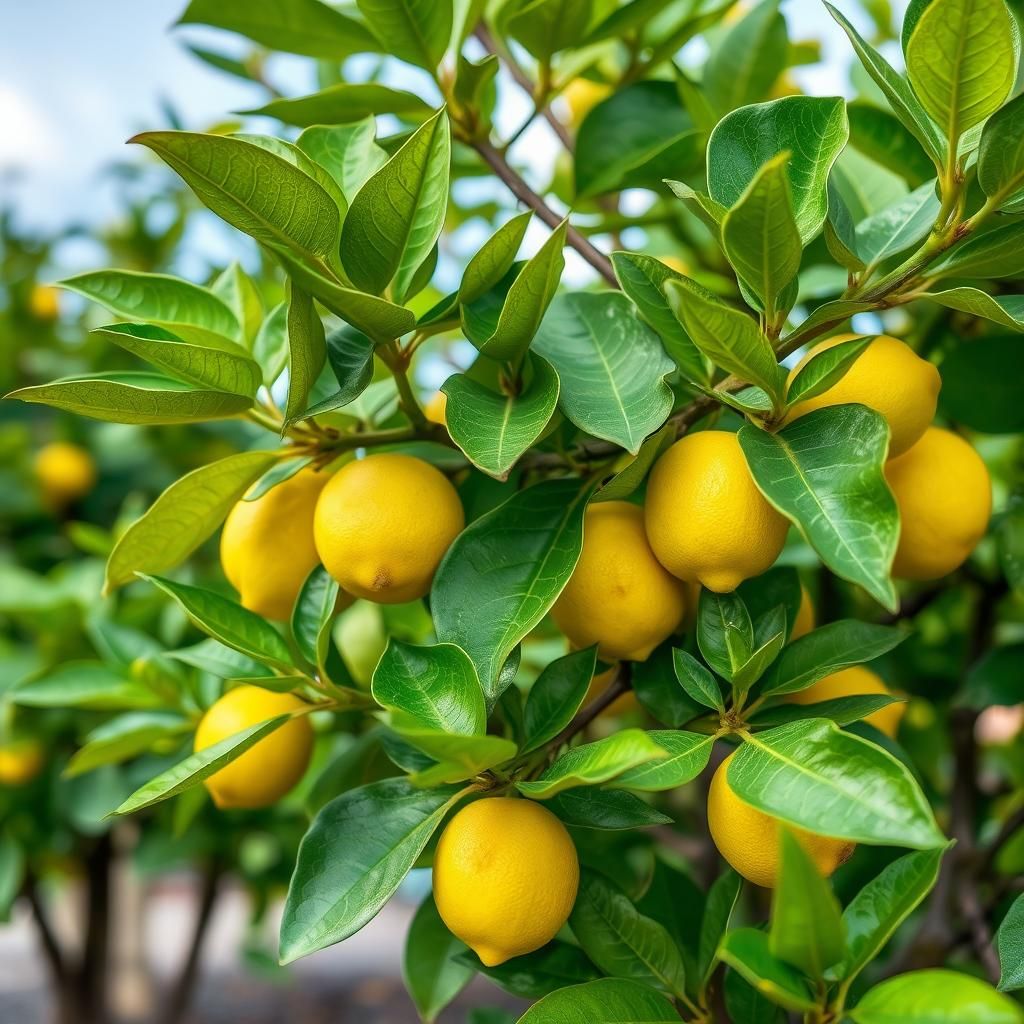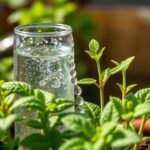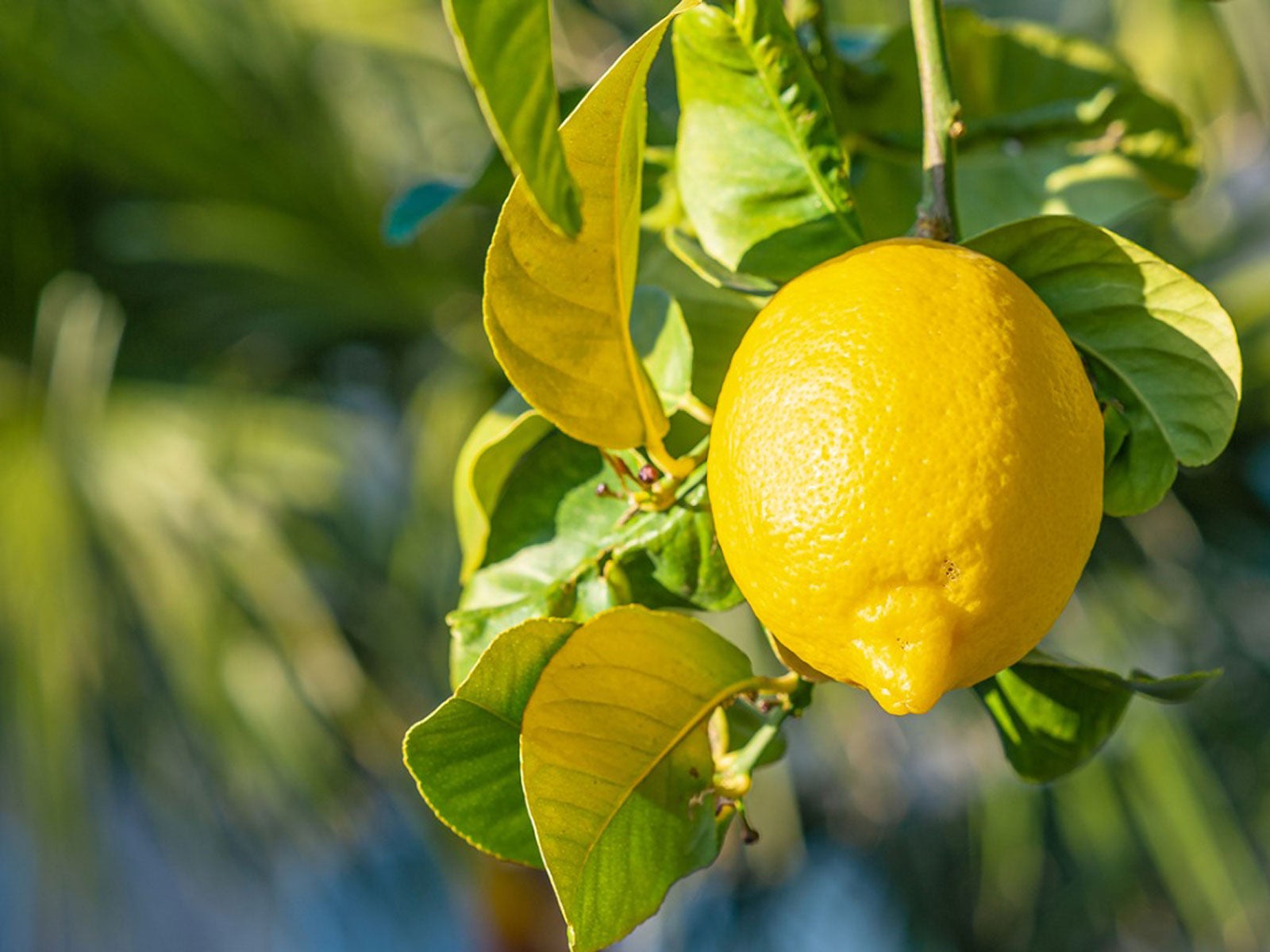Discover the Best Fertiliser for Lemon Trees: Top Choices for Healthy Growth

Growing lemon trees can be a rewarding experience, especially when they thrive and produce abundant fruit. However, to achieve healthy growth and vibrant yields, selecting the right fertilizer is crucial. With numerous options available on the market, it can be challenging to determine which fertilizers will best support the specific needs of lemon trees. In this article, we will explore the top choices for fertilizers that promote optimal growth, enhance fruit quality, and ensure your lemon trees remain healthy year-round. Join us as we dive into the essential nutrients your trees need and how to choose the best fertilizer for your garden.
Best Fertiliser for Lemon Trees
Lemon trees thrive when provided with the right fertiliser that meets their specific nutritional needs. The best fertiliser for lemon trees typically contains nitrogen, phosphorus, and potassium in a balanced ratio, often around 6-6-6 or 8-8-8, to promote healthy growth and fruit production. Additionally, incorporating micronutrients like magnesium and iron is crucial, as these elements help prevent common deficiencies that can hinder the health of the tree. Organic options such as compost or well-rotted manure are also beneficial, as they improve soil structure and provide a slow release of nutrients over time. Timing is key; applying fertiliser in early spring and again in late summer ensures the trees receive optimal nourishment during their growing seasons.
Nutritional Requirements of Lemon Trees
Lemon trees require a mix of macronutrients and micronutrients for healthy growth and fruit production. The three primary macronutrients are nitrogen, phosphorus, and potassium, which support various functions such as leaf development, root growth, and flowering. Micronutrients like calcium, magnesium, and iron are also essential in smaller amounts for processes like chlorophyll production and enzyme functions. Understanding these needs helps in selecting the right fertiliser to ensure the trees receive comprehensive nutrition throughout their growth cycle.
Organic vs. Synthetic Fertilisers
Choosing between organic and synthetic fertilisers involves understanding their benefits and drawbacks. Organic fertilisers, like compost and fish emulsion, improve soil health and provide a slow-release source of nutrients, promoting beneficial microbial activity in the soil. On the other hand, synthetic fertilisers offer rapid nutrient availability, leading to swift growth and fruiting. Both options can be effective, and many gardeners opt for a combination of both types to benefit from the advantages they each provide.
Timing for Fertilisation
Timing is crucial when applying fertiliser to lemon trees to ensure they receive nutrients when they need them most. The best time to apply fertiliser is in early spring, just as new growth begins, and again in late summer to support ongoing growth and fruit development. Avoid fertilising late in the season, as this can promote new growth that may not harden off before winter, leaving the tree vulnerable to cold damage. Regular soil testing can also help determine the best timing and amount of fertiliser needed for optimal health.
Signs of Nutrient Deficiency
Recognising the symptoms of nutrient deficiencies in lemon trees can help in making timely fertilisation decisions. For example, yellowing leaves often indicate a lack of nitrogen, while stunted growth may suggest phosphorus deficiency. If leaves develop a purplish hue, it could signal inadequate phosphorus. Similarly, brown leaf edges may point to potassium deficiency. Monitoring these signs allows gardeners to adjust their fertilisation practices promptly, ensuring the trees remain healthy and productive.
Recommended Fertiliser Products
Several fertiliser products are well-suited for lemon trees, each tailored to address their unique nutritional needs. Products such as citrus-specific fertilisers are designed to provide balanced nutrients ideal for these fruiting trees. Additionally, brands offering slow-release fertiliser formulations can help maintain consistent nutrient levels over time. Reading product labels is essential to ensure that they contain the right balance of N-P-K ratios and micronutrients necessary for optimal lemon tree growth.
| Fertiliser Type | Benefits | Application Frequency |
|---|---|---|
| Organic Fertilisers | Improves soil health, slow nutrient release | Every 2-3 months |
| Synthetic Fertilisers | Fast nutrient availability, immediate effect | Every 4-6 weeks |
| Citrus-Specific Fertilisers | Tailored nutrient balance for lemon trees | Spring and late summer |
| Slow-Release Fertilisers | Steady nutrient supply over time | Once every growing season |
What is the best fertilizer for lemon trees?

The best fertilizer for lemon trees typically contains a balanced mix of nutrients that support healthy growth and fruit production. Generally, a fertilizer with a higher nitrogen content is recommended during the growing season, while phosphorus and potassium are also essential for overall health and fruit development. A common choice is a slow-release fertilizer specifically formulated for citrus trees. Look for a formula with an N-P-K ratio of around 6-6-6 or 8-5-5, which provides the necessary nutrients in a balanced manner.
Benefits of Using Citrus-Specific Fertilizers
Citrus-specific fertilizers are tailored to meet the unique nutritional needs of lemon trees and other citrus plants. These fertilizers usually contain enhanced micronutrients such as magnesium, iron, and manganese, which are crucial for optimal growth.
- Enhanced growth: Provides essential nutrients that promote vigorous growth.
- Improved fruit quality: Supplies micronutrients that enhance flavor and fruit size.
- Reduced stress: Helps the tree cope with environmental stressors such as drought or disease.
Organic vs. Synthetic Fertilizers for Lemon Trees
Both organic and synthetic fertilizers have their advantages when it comes to supporting lemon tree health. Organic fertilizers, like compost or well-rotted manure, provide nutrients slowly over time and improve soil health. In contrast, synthetic fertilizers deliver immediate nutrients, which can be beneficial for rapid growth but may pose risks of over-fertilization.
- Organic fertilizers: Enhance soil quality and provide slow-release nutrients.
- Synthetic fertilizers: Provide immediate nutrients for fast growth.
- Environmental impact: Organic options are more sustainable and eco-friendly.
Application Timing for Fertilizing Lemon Trees
The timing of fertilizer application is crucial for maximizing the effectiveness of nutrients. Lemon trees should typically be fertilized in the early spring prior to the onset of blooming, and possibly again in late summer to support fruit development.
See also:
- Early spring: Apply fertilizer to kickstart growth at the beginning of the growing season.
- Mid-summer: A second application can help support fruit set and development.
- Fall: Avoid fertilizing too late in the season to prevent growth that could be damaged by cold temperatures.
Signs Your Lemon Tree Needs Fertilization
Several signs indicate that your lemon tree may require fertilization. Yellowing leaves, stunted growth, and poor fruit production can all be symptoms of nutrient deficiencies.
- Yellowing leaves: Often a sign of nitrogen deficiency which can be remedied with proper fertilization.
- Poor fruit yield: Insufficient nutrients can lead to reduced fruit quality and quantity.
- Stunted growth: Lack of nutrients can impede the plant's overall development.
Recommended Fertilizer Products for Lemon Trees
A variety of products are available that are suitable for lemon trees, ranging from granular slow-release formulas to liquid fertilizers. Look for brands that are specifically designed for citrus, which will typically contain a balanced blend of necessary nutrients.
- Granular slow-release fertilizers: Provide sustained nutrition over time, ensuring a continuous supply of nutrients.
- Liquid fertilizers: Offer quick absorption and are effective for immediate nutrient needs.
- Natural options: Such as compost tea, which can enhance soil microbial activity and nutrient availability.
Is 10-10-10 fertilizer good for lemon trees?

The 10-10-10 fertilizer, which contains equal parts of nitrogen, phosphorus, and potassium, can be beneficial for lemon trees, but its effectiveness largely depends on the specific needs of the tree and the soil conditions. Lemon trees require a balance of nutrients for healthy growth, fruit production, and overall vitality. Here are some considerations when using 10-10-10 fertilizer for lemon trees:
1. Nutritional Needs: Lemon trees thrive on nitrogen for leafy growth, phosphorus for root development, and potassium for fruit quality. The balanced ratio of 10-10-10 can support these needs but may not be the best choice for all stages of growth.
2. Soil Testing: Prior to using 10-10-10 fertilizer, it’s essential to conduct a soil test. This will help determine the existing nutrient levels in the soil and indicate whether additional nitrogen, phosphorus, or potassium is truly necessary.
3. Application Timing: The timing of fertilizer application plays a critical role in its effectiveness. Lemon trees benefit most when fertilized during their active growth period, typically in the spring and summer months.
4. Risk of Over-Fertilization: Applying 10-10-10 fertilizer excessively can lead to nutrient burn, negatively impacting the lemon tree’s health. It’s important to follow recommended application rates and guidelines to avoid such issues.
5. Alternatives to 10-10-10 Fertilizer: There are fertilizers specifically formulated for citrus trees that may provide a more targeted nutrient profile. These can often offer better results compared to a general-purpose fertilizer like 10-10-10.
Understanding the Nutrients in 10-10-10 Fertilizer
The 10-10-10 fertilizer contains three key nutrients: nitrogen, phosphorus, and potassium. Each of these plays a unique role in the health of lemon trees:
- Nitrogen: Crucial for vigorous leaf and stem growth.
- Phosphorus: Supports root development and flowering, which is vital for fruit formation.
- Potassium: Enhances fruit quality and overall tree resilience against diseases.
Benefits of Using 10-10-10 Fertilizer for Lemon Trees
Using 10-10-10 fertilizer can offer several advantages for lemon trees, especially when used correctly:
- Balanced Nutrition: Provides a steady supply of essential nutrients for overall tree health.
- Simplicity: Easy to apply and widely available, making it accessible for many gardeners.
- Boost Growth: Can enhance growth rates and overall vigor if applied at the right times.
How to Apply 10-10-10 Fertilizer
Applying 10-10-10 fertilizer requires careful measurement and timing to avoid damaging the tree:
See also:
- Rate of Application: Follow the manufacturer’s instructions, which typically suggest a specific amount based on tree age and size.
- Even Distribution: Spread the fertilizer evenly around the root zone, avoiding direct contact with the trunk.
- Watering: Water the tree thoroughly after application to help distribute the nutrients into the soil.
Signs of Nutrient Deficiency in Lemon Trees
Lemon trees can exhibit signs of nutrient deficiencies that may necessitate the use of fertilizer:
- Yellowing Leaves: Particularly in older leaves, which can indicate a nitrogen deficiency.
- Poor Fruit Development: Indicates possible deficiencies in phosphorus and potassium.
- Stunted Growth: May suggest a lack of overall nutrients or poor soil conditions.
Considerations for Organic Alternatives
For those looking for organic alternatives, options exist that can provide similar benefits without the chemicals:
- Composted Manure: Rich in nutrients and can improve soil structure.
- Bone Meal: An excellent source of phosphorus for root growth.
- Wood Ash: Provides potassium and can help raise soil pH.
How many times a year should you fertilize a lemon tree?

Lemon trees should be fertilized three to four times a year to ensure they receive adequate nutrients for healthy growth and fruit production. The timing and type of fertilizer used can significantly affect the tree's performance. Fertilization should generally occur in early spring, early summer, and possibly again in late summer or fall, depending on the specific needs of the tree and local growing conditions.
Optimal Timing for Fertilization
Fertilizing at the right time is crucial for the health of a lemon tree. The following are key periods for nutrient application:
- Early Spring - Apply fertilizer when the new growth begins, as this will support the active growing season.
- Early Summer - A second application in early summer helps sustain growth and fruit development.
- Late Summer/Fall - Optionally, apply fertilizer to prepare the tree for the dormancy period, depending on your climate.
Types of Fertilizer to Use
Choosing the right fertilizer is essential for ensuring a lemon tree's health. Different types include:
- Granular Fertilizers - These provide a slow release of nutrients over time and are often preferred for citrus trees.
- Liquid Fertilizers - These can be applied more frequently and provide immediate nutrients but require more careful application.
- Organic Fertilizers - Comprising natural materials, these are often preferred for eco-friendly gardening practices.
Signs Your Lemon Tree Needs Fertilizer
Recognizing signs of nutrient deficiency can help determine when to fertilize. Watch for:
- Pale Leaves - Yellowing foliage may indicate a lack of nitrogen or other essential nutrients.
- Stunted Growth - If the tree is not growing as expected, fertilization might be overdue.
- Poor Fruit Production - Limited fruit development can signify that the tree is not receiving adequate nutrition.
Common Mistakes to Avoid
Fertilizing incorrectly can harm a lemon tree, so it's essential to avoid the following:
- Over-Fertilization - Too much fertilizer can burn the roots and damage the tree.
- Using the Wrong Type - Selecting an inappropriate fertilizer can lead to nutrient imbalances.
- Neglecting Soil Testing - Failing to check soil pH and nutrient levels may result in ineffective fertilization.
Watering After Fertilization
Properly watering your lemon tree after fertilization enhances nutrient absorption:
- Immediate Watering - Watering shortly after applying fertilizer helps dissolve nutrients and aids in root uptake.
- Maintenance Watering - Continued regular watering after fertilization ensures the tree remains hydrated and can utilize the added nutrients.
- Soil Moisture Monitoring - Checking soil moisture levels can prevent overwatering while ensuring adequate hydration.
Questions from Our Readers
What is the best fertilizer for lemon trees?
The best fertilizer for lemon trees is one that is high in nitrogen and contains trace elements like magnesium and iron. A balanced fertilizer with a ratio such as 10-10-10 or one specifically formulated for citrus trees is ideal. Additionally, slow-release fertilizers can provide a steady nutrient supply over time.
How often should I fertilize my lemon trees?
You should fertilize your lemon trees every 6 to 8 weeks during the growing season, which is typically from spring to early fall. This regular feeding helps provide the essential nutrients needed for healthy growth and abundant fruit production.
Can I use organic fertilizers for lemon trees?
Yes, you can use organic fertilizers such as compost, aged manure, or fish emulsion for lemon trees. These organic options are not only safe but also improve soil structure and promote beneficial microbial activity, leading to healthier trees and better fruit quality.
See also:
When is the best time to fertilize lemon trees?
The best time to fertilize lemon trees is in early spring, just as they begin to show new growth, and again in mid-summer to support ongoing growth and fruit development. This timing ensures that the trees have ample nutrients available throughout their active growing season.

If you want to read more articles like Discover the Best Fertiliser for Lemon Trees: Top Choices for Healthy Growth, we recommend you check out our Fertilisers category.
Leave a Reply
Related Articles